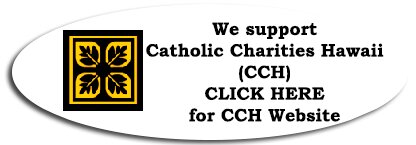Best Licensing Lawyers in Hawaii
Share your needs with us, get contacted by law firms.
Free. Takes 2 min.
Or refine your search by selecting a city:
List of the best lawyers in Hawaii, United States
United States Licensing Legal Questions answered by Lawyers
Browse our 1 legal question about Licensing in United States and read the lawyer answers, or ask your own questions for free.
- How do I legally protect my idea before selling or licensing it to a company?
- I have a makeup product idea that I want to sell or license, not the product itself. It is influenced by a product that was recently launched. Therefore, I want to sell/license to the company that launched said product. After some research, I contacted a patent attorney who explained that... Read more →
-
Lawyer answer by P.O OHIKHENA & Co
Good day,A patent will not be applicable since it's still an idea. You can go into an MOU(Memorandum of understanding) with the said company and also an NDA.You can contact me for my insight. Visit our profile and send us...
Read full answer
About Licensing Law in Hawaii, United States
Licensing law in Hawaii governs the permission to engage in certain professions, businesses, and activities within the state. Whether you are starting a new business, practicing a regulated profession like real estate or medicine, or planning to serve alcohol at a restaurant, you will likely need to obtain a license from a relevant government agency. Hawaii's licensing laws are designed to protect the public, ensure safety and professionalism, and maintain legal compliance across various sectors. Licensing requirements in Hawaii can range from simple business registrations to complex qualifications and ongoing compliance checks for specialized fields.
Why You May Need a Lawyer
Engaging a lawyer for licensing issues in Hawaii can be highly beneficial in several common scenarios. Some people encounter legal challenges while applying for, renewing, or transferring licenses, or when facing denial, suspension, or revocation of an existing license. A legal professional can help with disputes involving regulatory agencies, ensure all paperwork is completed accurately, advise on compliance with changing laws, and represent you in administrative hearings or appeals. Lawyers can also provide useful guidance if you are unsure which licenses you need or how state and county requirements differ.
Local Laws Overview
Licensing in Hawaii is regulated through a combination of state statutes, administrative rules, and county ordinances. The Hawaii Department of Commerce and Consumer Affairs (DCCA) is the central agency overseeing professional and vocational licensing, while business and occupational licenses may involve other agencies such as the Department of Health or county liquor commissions. Requirements can include passing exams, meeting educational standards, submitting fingerprints, and providing proof of insurance. Each county may add its own requirements for particular activities. Hawaii also requires many businesses and professionals to renew their licenses regularly, with penalties for lapses or noncompliance.
Frequently Asked Questions
What types of activities typically require a license in Hawaii?
Commonly licensed activities include operating a business, selling goods or services, practicing professions like law or medicine, serving alcohol, and engaging in trades such as contracting or cosmetology.
How do I apply for a professional license in Hawaii?
Most professional licenses are managed by the Professional and Vocational Licensing Division of the DCCA. Applications typically require proof of education, relevant exam results, payment of fees, and sometimes background checks.
What is the process for obtaining a business license?
Businesses must register with the state and obtain the appropriate tax licenses, such as a General Excise Tax license. Local counties may require additional permits depending on the business type and location.
Can my license application be denied? What can I do if it is?
Yes, applications can be denied for incomplete information, failure to meet requirements, or prior violations. You may have the right to appeal the decision, and it is wise to consult a lawyer for guidance on appeals.
What happens if I operate without the required license?
Operating without a required license can result in fines, business closure orders, civil penalties, or even criminal charges. You may also have difficulty obtaining future licenses.
Are licenses required to be renewed in Hawaii?
Most licenses in Hawaii require regular renewal, usually every one or two years. Renewal deadlines and requirements vary by license type and issuing authority.
What are common reasons for license suspension or revocation?
Licenses can be suspended or revoked for violations of laws or regulations, complaints from consumers, failure to renew or report changes, or criminal convictions related to the licensed activity.
Do licensing requirements differ between counties in Hawaii?
Yes, while most professional licensing is statewide, counties may have their own requirements for certain business activities, especially those related to food, liquor, and construction.
How can I find out which licenses I need for my new business?
You can consult the Hawaii Business Action Center, county offices, and relevant state departments. An attorney specializing in licensing law can also provide tailored advice for your situation.
Can a lawyer assist with license restoration or reinstatement?
A lawyer can represent you during agency hearings, prepare arguments, and assist with paperwork required for reinstating a suspended or revoked license. Their experience can improve your chances of success.
Additional Resources
- Hawaii Department of Commerce and Consumer Affairs (DCCA): Handles professional and vocational licenses, business registration, and complaints. - Hawaii Business Action Center: Offers guidance for starting new businesses and understanding licensing requirements. - County Departments: Each county (Honolulu, Maui, Hawaii, Kauai) has its own agencies for liquor, building, and dangerous trades licensing. - Hawaii State Bar Association (HSBA): Provides lawyer referral services for individuals needing legal help with licensing. - Small Business Administration (SBA) Hawaii District Office: Offers resources for business owners regarding necessary permits and compliance.
Next Steps
If you believe you need legal assistance related to licensing in Hawaii, begin by identifying the exact type of license involved and gather all relevant paperwork. Review deadlines for submission, renewal, or appeal, and contact the appropriate state or county agency for specific requirements. Consider consulting an attorney with experience in licensing law who can help you navigate applications, appeals, compliance matters, or hearings. For lawyer referrals, consider contacting the Hawaii State Bar Association. Being proactive and informed can help prevent costly delays or legal hurdles related to licensing in Hawaii.
Lawzana helps you find the best lawyers and law firms in Hawaii through a curated and pre-screened list of qualified legal professionals. Our platform offers rankings and detailed profiles of attorneys and law firms, allowing you to compare based on practice areas, including Licensing, experience, and client feedback.
Each profile includes a description of the firm's areas of practice, client reviews, team members and partners, year of establishment, spoken languages, office locations, contact information, social media presence, and any published articles or resources. Most firms on our platform speak English and are experienced in both local and international legal matters.
Get a quote from top-rated law firms in Hawaii, United States — quickly, securely, and without unnecessary hassle.
Disclaimer:
The information provided on this page is for general informational purposes only and does not constitute legal advice. While we strive to ensure the accuracy and relevance of the content, legal information may change over time, and interpretations of the law can vary. You should always consult with a qualified legal professional for advice specific to your situation.
We disclaim all liability for actions taken or not taken based on the content of this page. If you believe any information is incorrect or outdated, please contact us, and we will review and update it where appropriate.
Browse licensing law firms by city in Hawaii
Refine your search by selecting a city.











